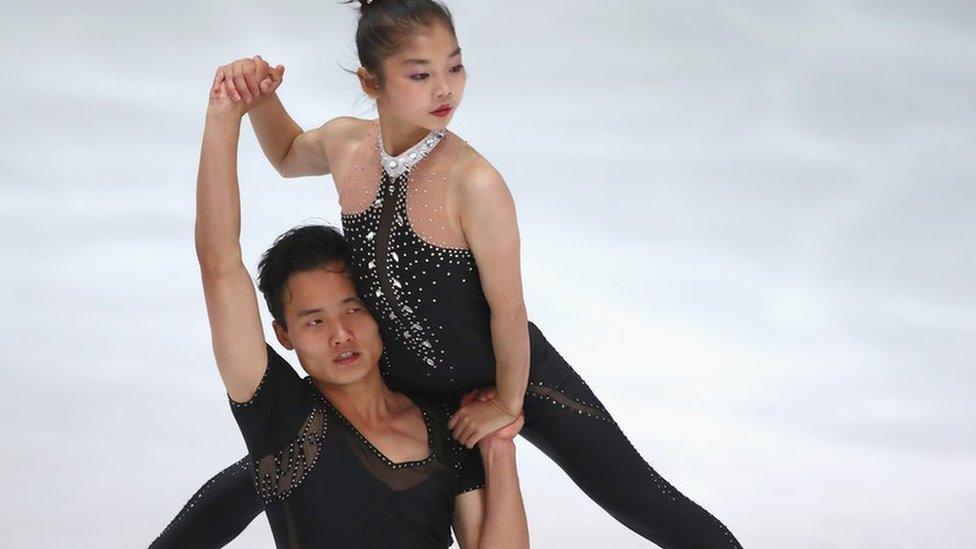Winter Olympics 2018: Pence skips dinner with N Koreans
- Published
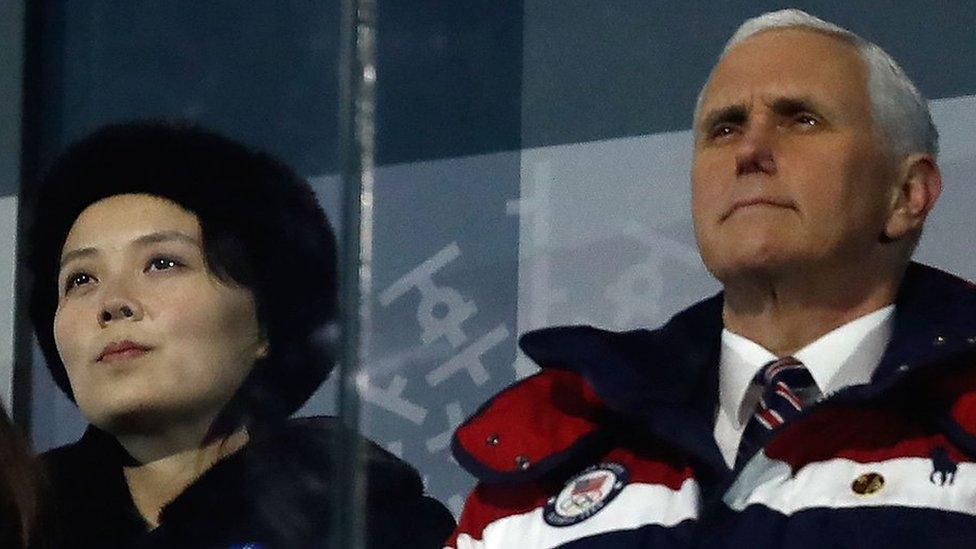
Kim Jong-un's sister Kim Yo-jong was seated in the row behind US Vice-President Mike Pence at the opening ceremony
US Vice-President Mike Pence has skipped a dinner at which he was due to share a table with North Korea's ceremonial head of state Kim Yong-nam.
Mr Pence briefly encountered Mr Kim but they tried to avoid directly facing each other, Yonhap news agency reports.
Later South Korean President Moon Jae-in shook hands with North Korean leader Kim Jong-un's sister, Kim Yo-jong, at the Winter Olympics opening ceremony.
The Games are taking place amid tension over North Korea's nuclear programme.
Mr Yong-nam did briefly meet with United Nations Secretary-General Antonio Guterres at the dinner. According to a UN spokesperson, Mr Guterres reiterated a hope for "peaceful denuclearisation" on the peninsula.
What happened at the dinner?
Mr Pence and Kim Yong-nam were being hosted by President Moon before the opening ceremony in Pyeongchang.
But the US vice-president left the reception venue after five minutes, South Korea's Yonhap said.
While Mr Moon and Japanese Prime Minister Shinzo Abe both shook hands with Mr Kim, Mr Pence did not, South Korean officials said.
What we've seen of Kim Yo-jong from North Korean media (2018 video)
At the event Mr Moon said he hoped the Winter Olympics would be remembered as the "day peace began". He is due to meet the North Korean delegation for talks on Saturday according to Yonhap.
At the opening ceremony, Mr Pence, Kim Yo-jong and Kim Yong-nam were seated in close proximity to each other.
Mr Pence has brought to South Korea as a guest Fred Warmbier, the father of a young American who died after being released from prison in North Korea.
Who is Kim Yo-jong?
The highest profile member of the North Korean delegation to the Games, she is the first immediate member of the North's ruling family to visit the South since the 1950-1953 Korean war.
Ms Kim, who is said to be very close to her brother, was promoted to the North's powerful politburo last year.
She is on a US sanctions list over alleged links to human rights abuses in North Korea.
Ms Kim is thought to be about 30 years old, around four years younger than her brother.
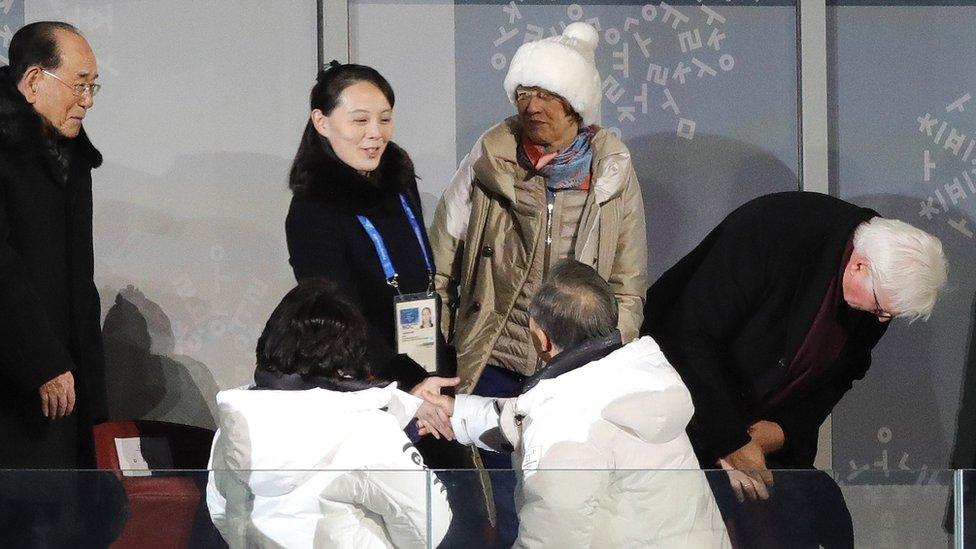
North Korea's Ms Kim shook hands with South Korea's Mr Moon at the opening ceremony
Her visit is being seen as a sign that Kim Jong-un is serious about improving ties with the South, the BBC's South Korea correspondent Laura Bicker reports.
She adds that some are also speculating that Ms Kim might be bringing a message from her brother.
How will the Koreas compete at the Games?
Athletes from both North and South Korea marched under one flag at the opening ceremony, bringing spectators to their feet.
They are also fielding a joint women's ice hockey team.
Alongside 22 athletes, Pyongyang has sent more than 400 delegates to the Games, including a team of cheerleaders and an orchestra.
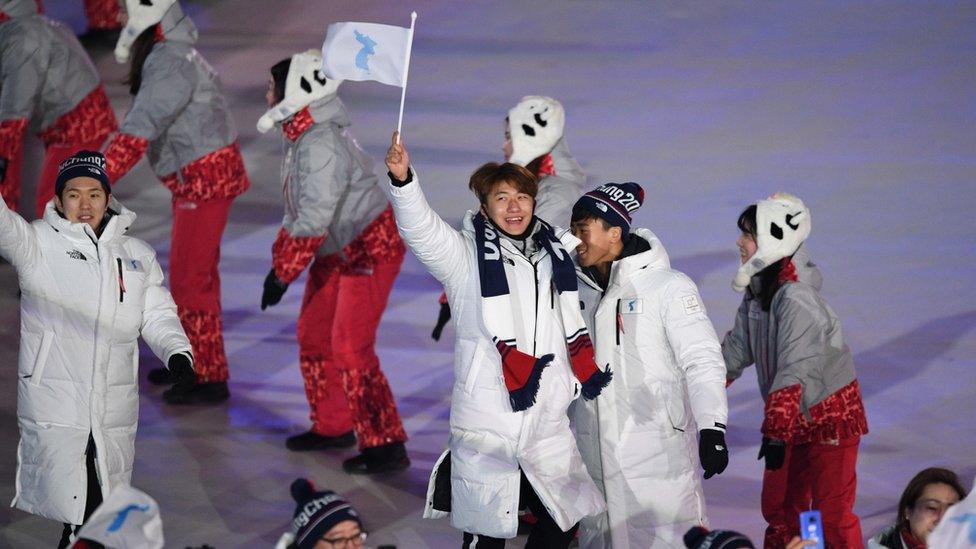
North and South Korean athletes marched under one flag at the opening ceremony
However the opening ceremony was not shown on North Korean state TV, which was broadcasting patriotic songs and slogans celebrating industry and the armed forces.
Have relations warmed?
Experts have cautioned that the current burst of sports diplomacy does not put an end to underlying regional tensions.
On Thursday North Korea had held a military parade that was originally scheduled for April but was brought forward.
Nevertheless, 2018 has got the countries off on an improved footing.
Kim Jong-un surprised many in his televised new-year speech, when - amid threats against the US - he expressed support for the Winter Olympics and a wish to "melt the frozen North-South relations".
The South had already said the North would be welcome to send a delegation, but few believed it would happen.
Later in January, a communications hotline was reinstated between the two countries, whose authorities then met for the first high-level talks in two years.
The Korean peninsula has been divided since the 1950-53 war and the two sides have never signed a peace treaty.
- Published8 February 2018
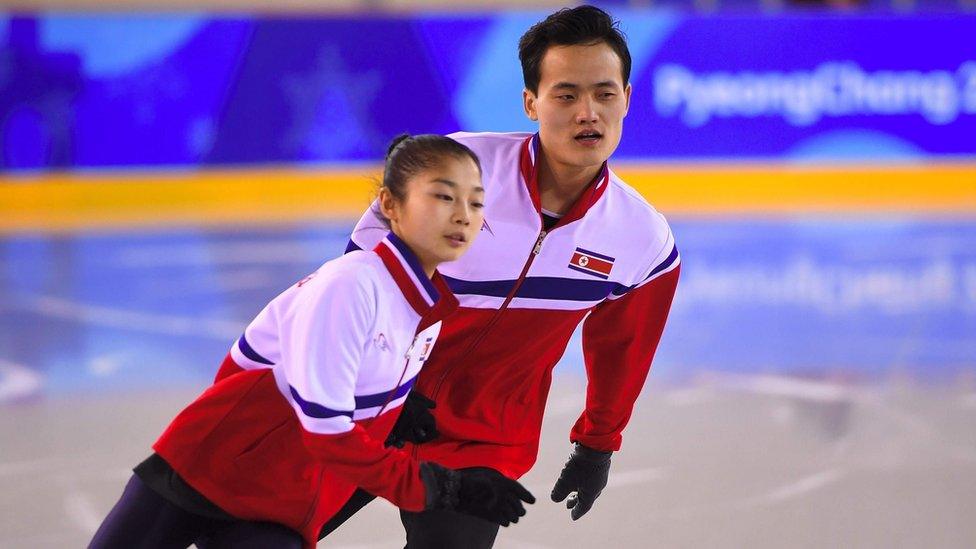
- Published9 February 2018
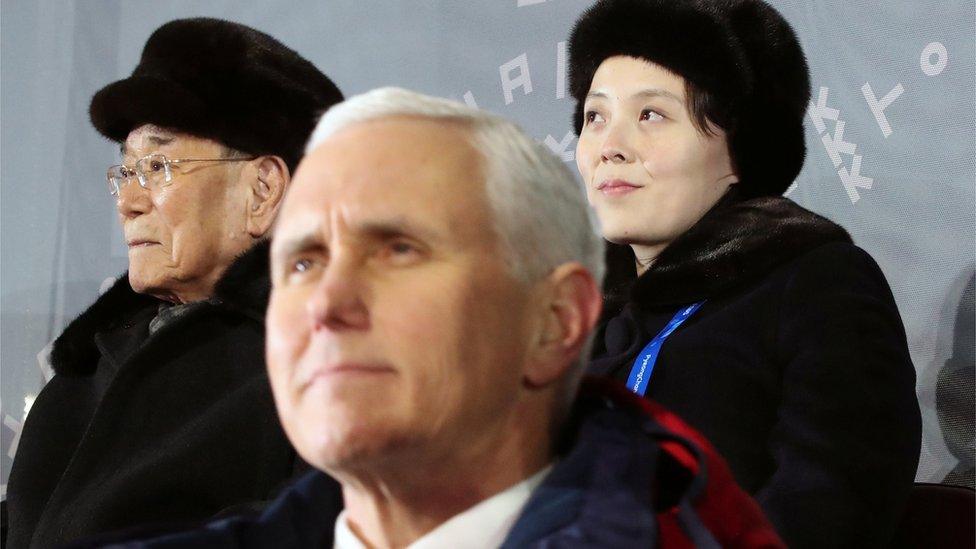
- Published7 February 2018
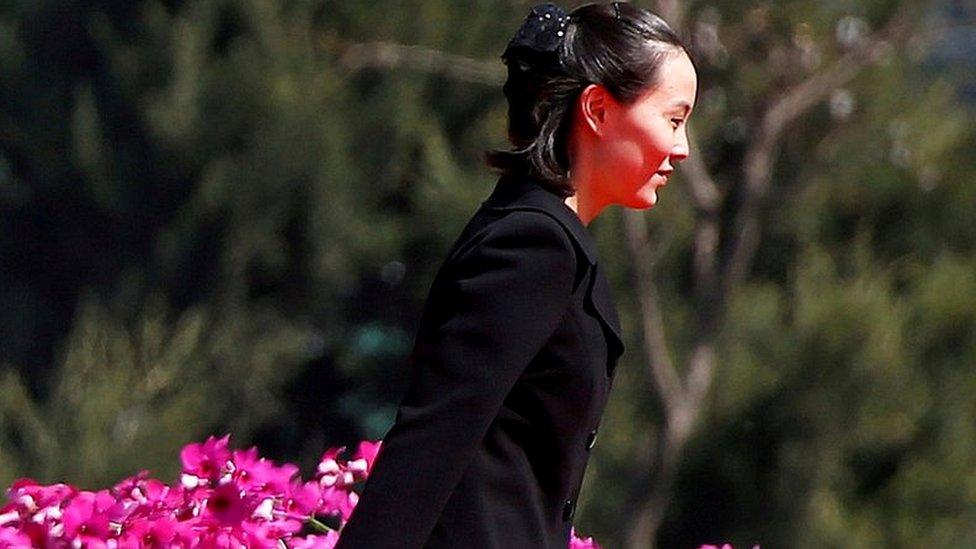
- Published8 February 2018
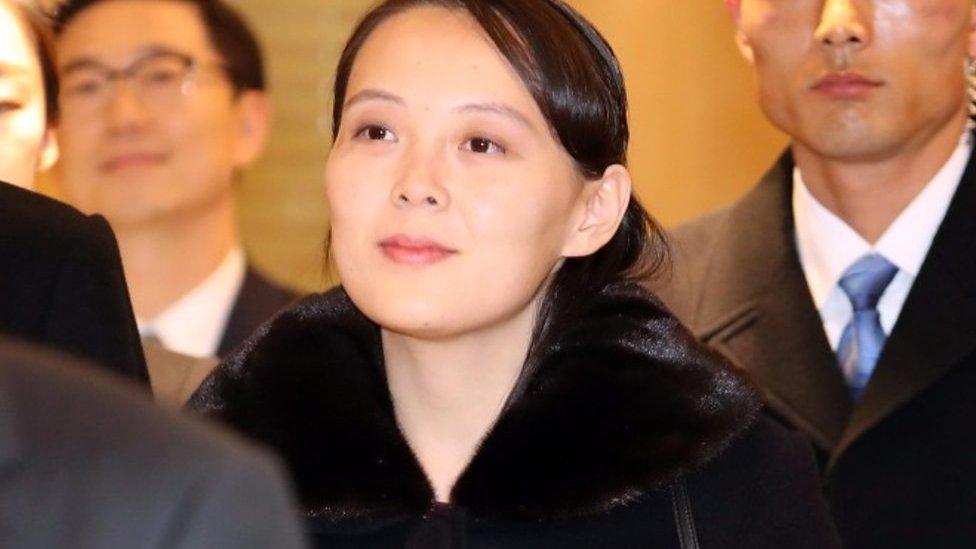
- Published16 June 2020
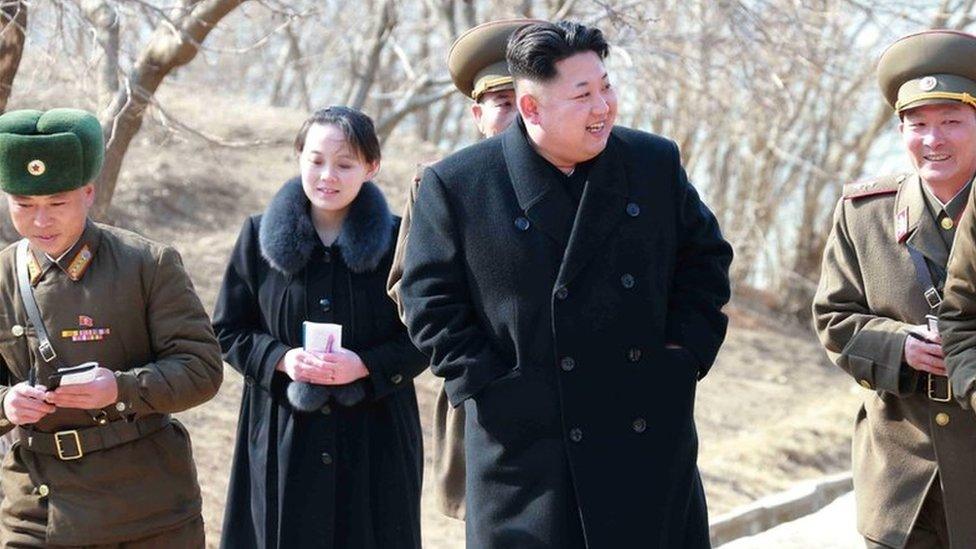
- Published9 January 2018
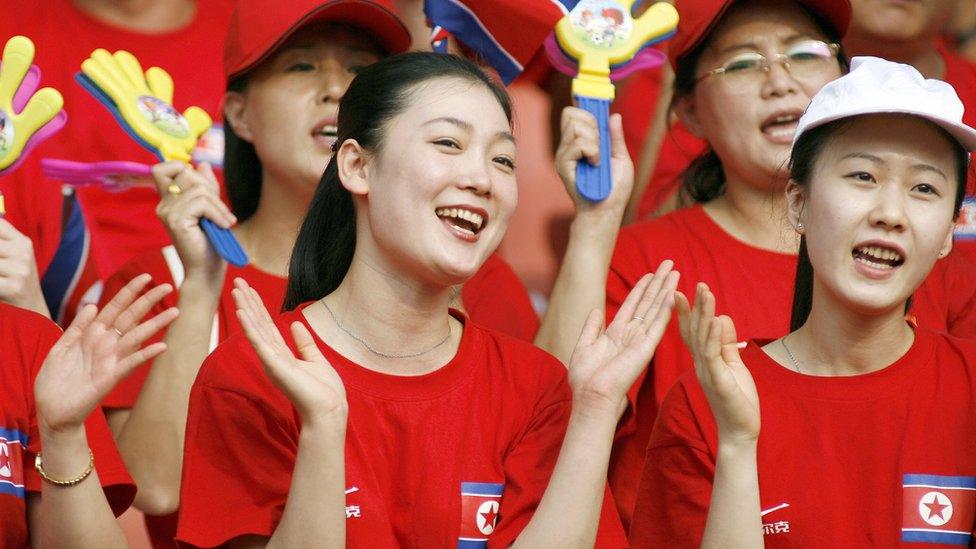
- Published9 February 2018
